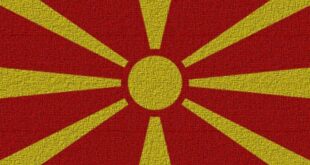 The largest ethnic Albania party in Macedonia, the Democratic Union for Integration, DUI, warned its bigger ruling partner, VMRO DPMNE, that its patience for resolving the burning Athens-Skopje name dispute is running out.
The largest ethnic Albania party in Macedonia, the Democratic Union for Integration, DUI, warned its bigger ruling partner, VMRO DPMNE, that its patience for resolving the burning Athens-Skopje name dispute is running out.
The party vice president, Rafiz Aliti, said the talks for solving this row, which are hampering Macedonia’s EU and NATO perspective, ‘can not last indefinitely’ and that the DUI will pursue the interests of the Albanian minority first and foremost.
“We feel the pressure from our voters and from all other sides. It is very important for Albanians that Macedonia becomes part of NATO as soon as possible,” Aliti told local Dnevink daily on Thursday.
Opinion polls show that ethnic Albanians, who represent a quarter of Macedonia’s population, are not as concerned about the preservation of Macedonia’s formal name than ethnic Macedonians. Instead, they hold EU and NATO accession as their top priorities.
Dnevinik cited unnamed party sources as saying that the DUI is prepared to wait a bit longer, until this year’s end, for a final compromise.
DUI last year distanced itself from this problem and gave a green light to their partner, VMRO DPMNE, to pursue a UN sponsored solution, letting their representatives speak from the angle of the ethnic Macedonian majority.
But some local experts have suggested that the party is expected to radicalise their position after they received a warning from the electorate in this year’s March local and presidential elections, in which they lost important posts. They are arguing that the Albanians are displeased by DUI’s passive attitude in the government.
The long running name dispute escalated last year in April when Athens blocked Skopje’s NATO invitation due to the name ‘Macedonia’ that Greece insists implies territorial claims on its own province which has the same name. Later that same month, neighbouring Albania was invited to join.
The intensified UN talks have been running ever since, but have yet to bear fruit. Due to elections in both Greece and Macedonia, talks have currently been put on hold and are expected to gain momentum after June.
In 2001, a six-month armed conflict broke out in Macedonia due to an Albanian insurgency. The peace deal signed afterward, which ended hostilities, promised the Albanian community greater rights. Observers say that the country’s unanimous Euro-Atlantic perspective is still the strongest glue between the Macedonians and Albanians.
 Eurasia Press & News
Eurasia Press & News



